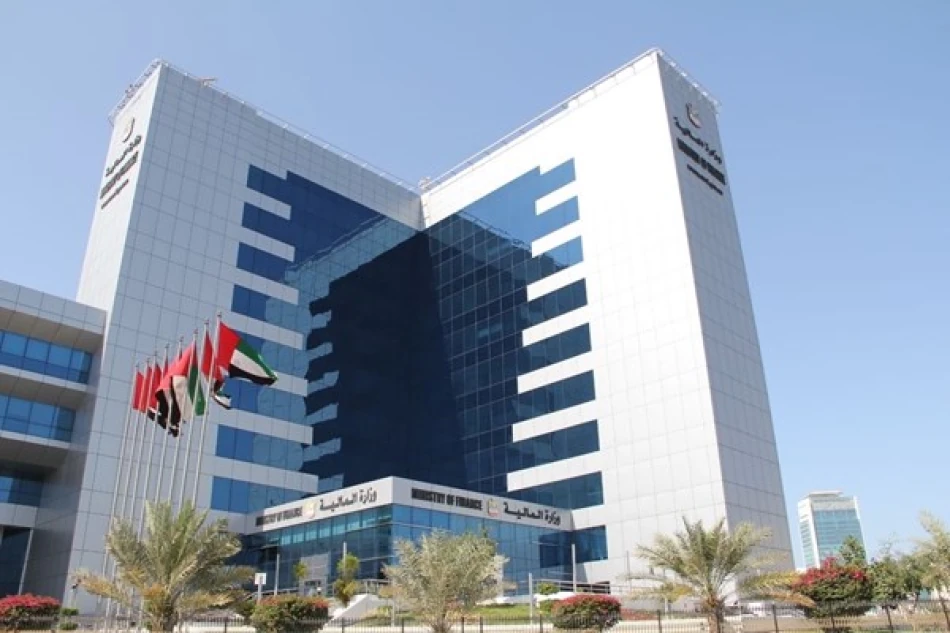
UAE Signs Automatic Information Exchange Pact for Cryptocurrency Asset Reporting
UAE Joins Global Crypto Tax Transparency Initiative, Setting 2027 Implementation Target
The UAE Ministry of Finance has signed onto the OECD's Crypto-Asset Reporting Framework (CARF), joining a growing coalition of nations committed to automatic tax information exchange on cryptocurrency transactions. The framework will take effect in 2027, with the first data exchanges scheduled for 2028, marking a significant shift toward international tax transparency in the Emirates' rapidly expanding digital asset sector.
What CARF Means for UAE's Crypto Ecosystem
The Crypto-Asset Reporting Framework establishes an automatic mechanism for sharing tax-related information on digital assets between participating countries. This system aims to close regulatory gaps that have allowed crypto transactions to operate in relative opacity compared to traditional financial instruments.
For the UAE, this represents a calculated balance between maintaining its competitive edge as a crypto-friendly jurisdiction and aligning with international tax compliance standards. The Emirates has positioned itself as a regional hub for digital assets, attracting major exchanges like Binance and numerous blockchain startups with relatively liberal regulatory approaches.
Industry Consultation Opens Door for Tailored Implementation
The Ministry of Finance has launched an eight-week public consultation period running until November 8, 2025, specifically targeting crypto service providers, advisory firms, intermediaries, traders, custodians, and trading platforms. This approach suggests the UAE is prioritizing industry input to craft regulations that serve both compliance and business interests.
The consultation timing is strategic—giving stakeholders nearly two years to prepare for implementation while allowing regulators to fine-tune requirements based on market feedback. This collaborative approach mirrors successful regulatory frameworks in Singapore and Switzerland, where early industry engagement helped create workable compliance structures.
Global Context and Competitive Implications
The UAE's CARF adoption places it alongside other major financial centers embracing crypto tax transparency. The framework, developed by the OECD, represents the international community's response to the rapid growth of digital assets and the potential for tax evasion through cross-border crypto transactions.
Unlike the EU's more restrictive approach or the US's complex regulatory patchwork, the UAE appears to be implementing CARF as part of a broader strategy to legitimize its crypto sector while maintaining competitive advantages. The 2027 timeline provides breathing room for businesses to adapt without immediate disruption.
Market and Investor Perspective
For crypto businesses operating in or considering the UAE, this development offers both challenges and opportunities. The automatic information sharing will likely increase compliance costs and reduce privacy for high-net-worth crypto investors who have gravitated toward the Emirates' favorable tax environment.
However, the regulatory clarity could attract institutional investors who have been hesitant to engage with crypto markets lacking robust oversight frameworks. Major cryptocurrency exchanges and fund managers often prefer jurisdictions with clear, internationally recognized regulatory standards over those operating in legal gray areas.
Strategic Positioning in the Regional Crypto Race
The UAE's move comes as regional competitors like Saudi Arabia and Bahrain also develop their digital asset frameworks. By adopting international standards while maintaining business-friendly policies, the Emirates is positioning itself as the "Switzerland of crypto" in the Middle East—regulated enough for institutional comfort, but flexible enough for innovation.
The success of this approach will largely depend on implementation details emerging from the current consultation process. If the UAE can create a CARF-compliant framework that doesn't significantly burden crypto businesses, it could strengthen its position as the region's preferred digital asset hub while satisfying international tax transparency requirements.
Most Viewed News

 Layla Al Mansoori
Layla Al Mansoori






